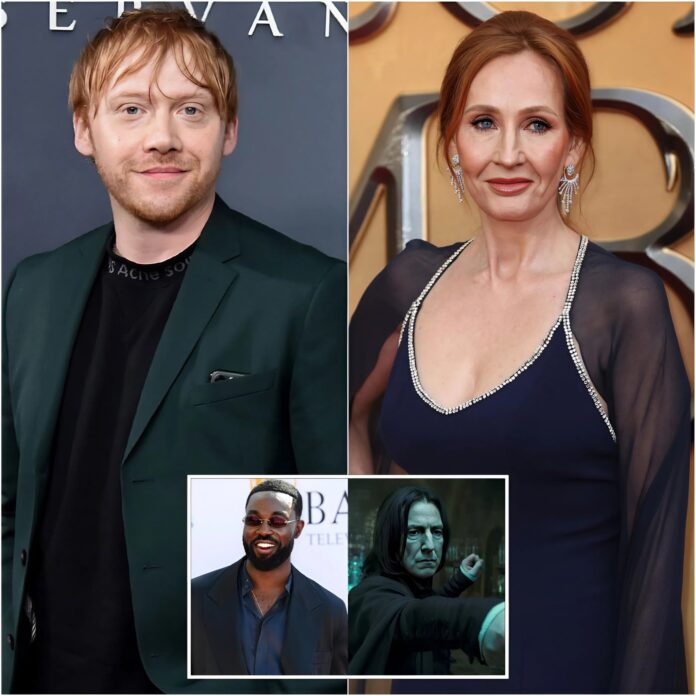Rupert Grint Backs J.K. Rowling in HBO’s Harry Potter Casting Dispute, Slams “Black Snape” Decision
In a stunning turn of events, Rupert Grint—forever known as Ron Weasley to millions of fans—has publicly sided with J.K. Rowling in the escalating battle over HBO’s upcoming Harry Potter television series. Grint voiced his disappointment with director Mark Mylod’s decision to cast Paapa Essiedu as Severus Snape, calling Rowling’s fight to protect her creation “the right thing.”
The controversy—quickly branded online as the “Black Snape” debate—erupted after Essiedu, a British actor of Ghanaian descent, was announced as Snape in April 2025. Critics argue the choice strays too far from Rowling’s written description of the character: pale, hook-nosed, and greasy-haired. Social media platforms lit up with accusations of “race-washing” and “woke casting,” while others defended the decision as a bold step toward greater representation in the wizarding world.
Grint, who has kept a relatively low profile since the films wrapped in 2011, broke his silence at a recent fan convention. “I’m disappointed in the direction they’re taking with Snape,” he said. “J.K. created these characters with such care, and I think she’s right to fight for her vision. It’s not about Paapa—he’s a brilliant actor—but about staying true to what fans fell in love with.” His remarks closely echo Rowling’s reported disapproval of what she calls “agenda-driven casting.”
Rowling, who serves as an executive producer, has clashed with both Mylod and showrunner Francesca Gardiner over creative decisions, most fiercely over Snape’s recasting. Tensions peaked when Rowling allegedly confronted Mylod with a curt warning: “You’ve made your choice. Goodbye.” Soon after, her legal team announced the withdrawal of $150 million in personal funding—sending HBO scrambling for alternatives and leaving the project’s future in doubt.
Grint’s alignment with Rowling has divided the fan base. Supporters hailed him as loyal to the spirit of the original series. “Rupert gets it. Snape’s not just a role—it’s a specific character,” one fan wrote on X. Critics, however, accused him of enabling Rowling’s broader controversies, especially her views on gender and identity that have already fractured ties with Daniel Radcliffe and Emma Watson. “This feels like a betrayal of the inclusive spirit Harry Potter stood for,” one viral post argued.
Meanwhile, Essiedu has found defenders in the acting community. Jason Isaacs, who portrayed Lucius Malfoy in the films, condemned the backlash as “rude” and “unfair” during a panel at FanExpo Denver. “Paapa’s an extraordinary actor,” Isaacs said. “He deserves to be judged on his performance, not pre-emptive outrage.”
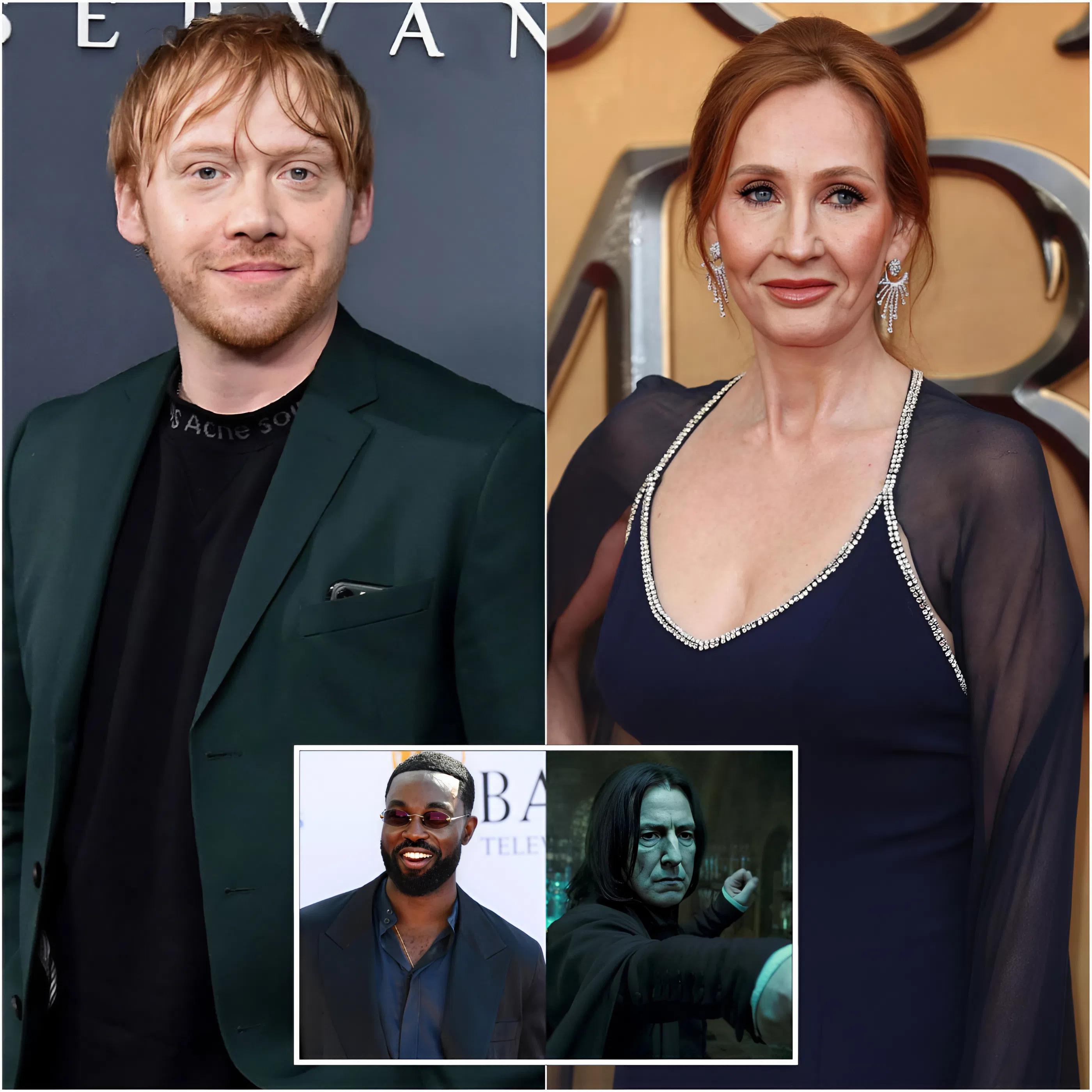
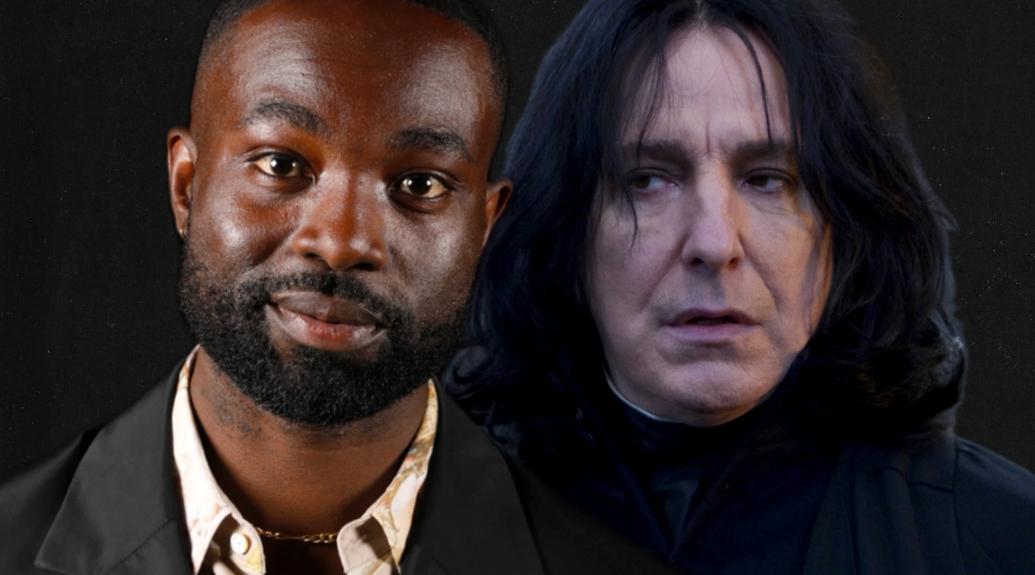
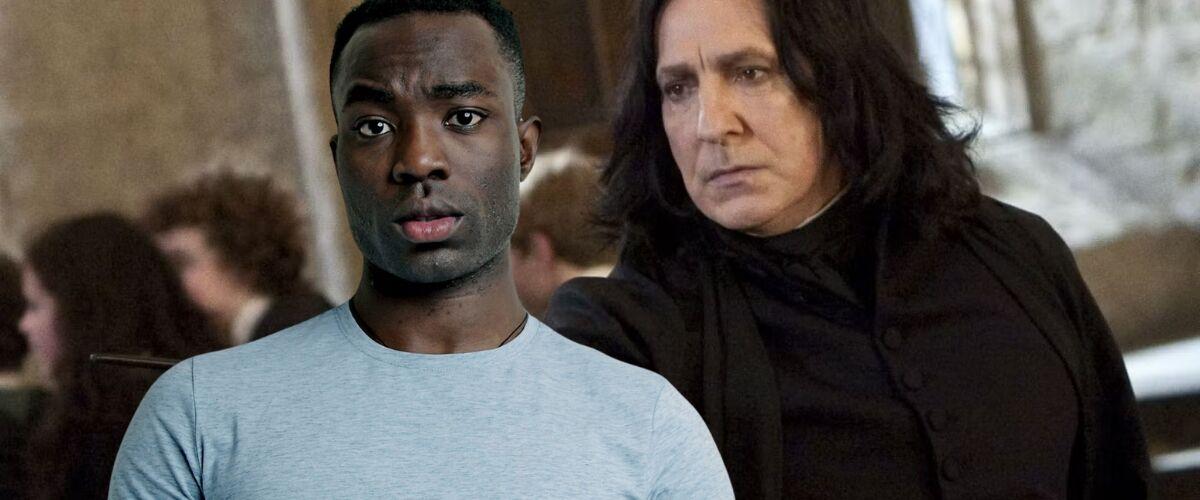
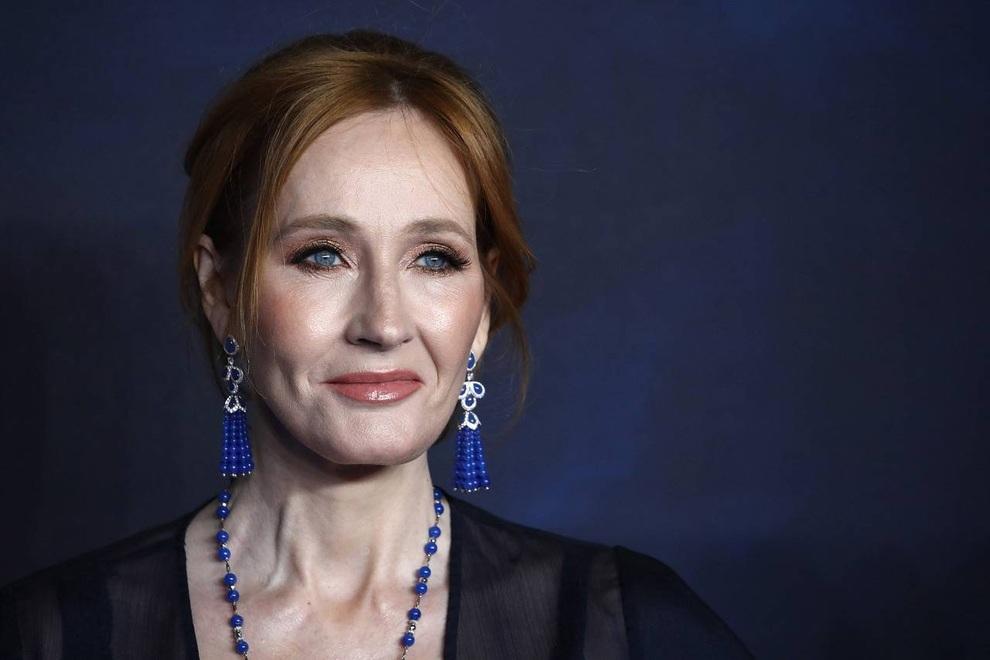
The turmoil has overshadowed the reboot’s broader ambitions. HBO intends the decade-long project to adapt all seven novels, with John Lithgow as Dumbledore, Janet McTeer as McGonagall, and Nick Frost as Hagrid. Yet the storm surrounding Snape has cast doubt over whether Rowling and HBO can move forward together.
Beyond Hogwarts, the dispute represents a deeper cultural struggle in Hollywood: the push-and-pull between honoring established lore and reimagining classics for new generations. For now, Grint’s decision to back Rowling has intensified the stakes, turning what was meant to be a triumphant return to the wizarding world into an all-out battleground over the soul of the franchise.
